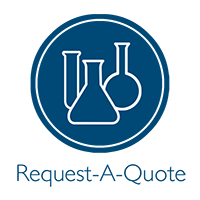This method is for the determination of alkalinity in wastewater, surface water and drinking water. Soaps, oily matter, suspended solids or precipitates in the sample can coat the glass electrode and cause a sluggish response. The sample should not be filtered, diluted, concentrated or altered after collection. Alkalinity of a water is its acid-neutralizing capacity and is the sum of all the titratable bases. Alkalinity is a measure of an aggregate property of water and can be interpreted in terms of specific substances only when the chemical composition of the sample is known. Because the alkalinity of many surface waters is primarily a function of carbonate, bicarbonate, and hydroxide content, it is taken as an indication of the concentration of these constitutents. Hydroxyl ions present in a sample as a result of dissociation or hydrolysis of solutes react with additions of standard acid. Alkalinity thus depends on the end-point pH used. The construction of a titration curve by recording sample pH after successive small measured additions of titrant permits identification of inflection points and buffering capacity, if any, and allows the alkalinity to be determined with respect to any pH of interest. The method recommends to analyze samples without delay and preferably within one day. If biological activity is suspected, the sample should be analyzed within six hours of sample collection. Regulatory requirements are to analyze the sample within 14 days of sample collection.
No Obligation Quotation for Analytical Services
If you would like us to provide a quote for laboratory analysis, just provide us with as much information as you can about your project (the more, the better) and we'll provide you a quote via email. As you are searching or browsing our Analytical Guide, you'll see the Request-A-Quote icon... just click on it to start the request process.
| Hold Times, Preservatives, Preps, Collection, Analytical & Documentation | |
|---|---|
| Holding Time: | 14 days from sample collection to analysis for regulatory purposes. |
| Preservatives: | Store at a low temperature (4°C ± 2) |
| Required Preps: | 250 mL polyethylene or borosilicate glass bottle |
| Collection Method: | Grab sampling |
| Analytical Methodology: | Electrometric Titration, pH Meter, or Color Indicator. |
| Documentation: | |
| Analyte | Formula | CAS Number | Detection Limit | |
|---|---|---|---|---|
| Alkalinity, Total | 20 |
mg/L | ||
* The analytes and detection limits listed for each method represent the typical detection limits and analytes reported for that particular method. Keep in mind that analyte lists may vary from laboratory to laboratory. Detection limits may also vary from lab to lab and are dependent upon the sample size, matrix, and any interferences that may be present in the sample.